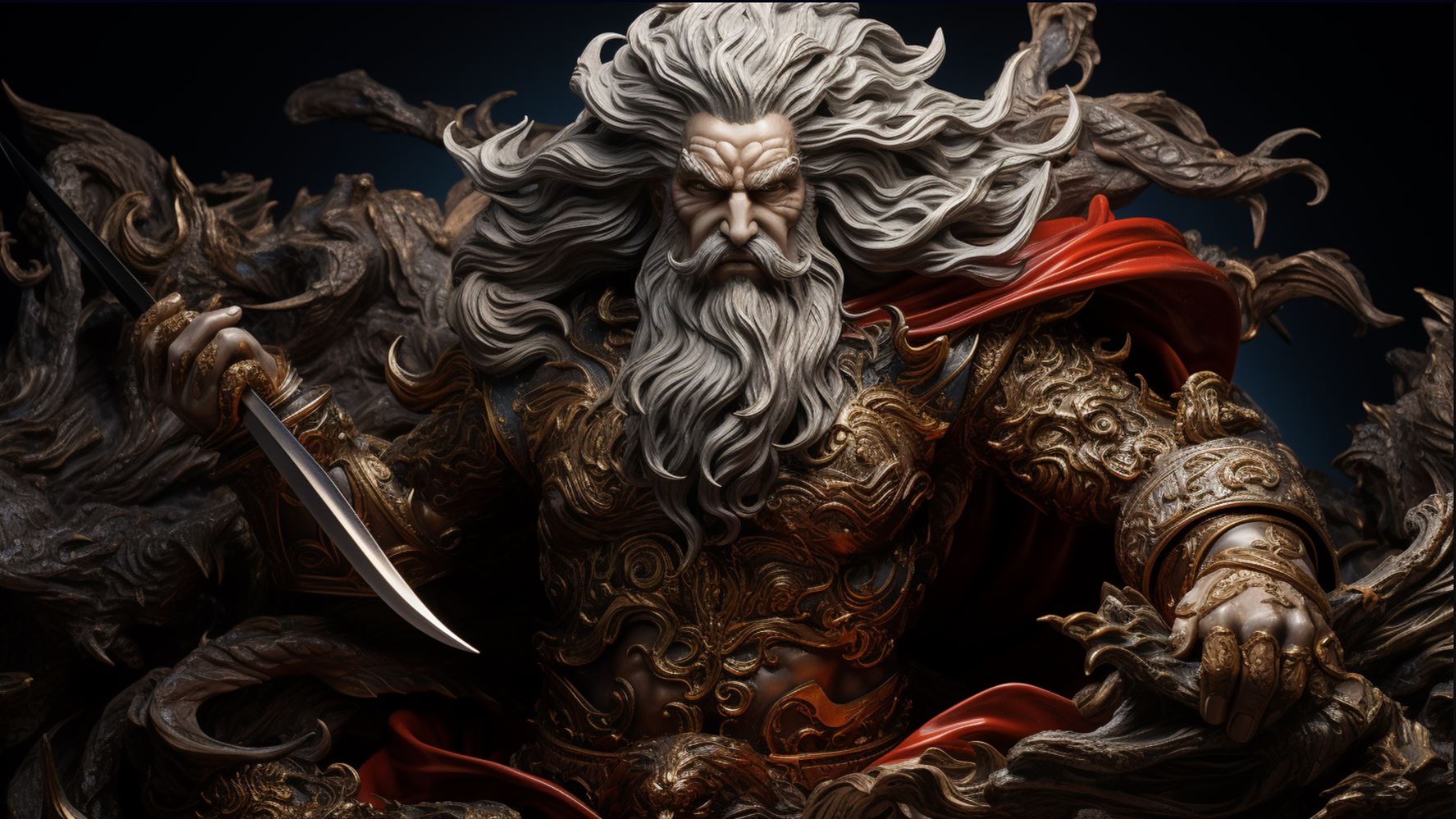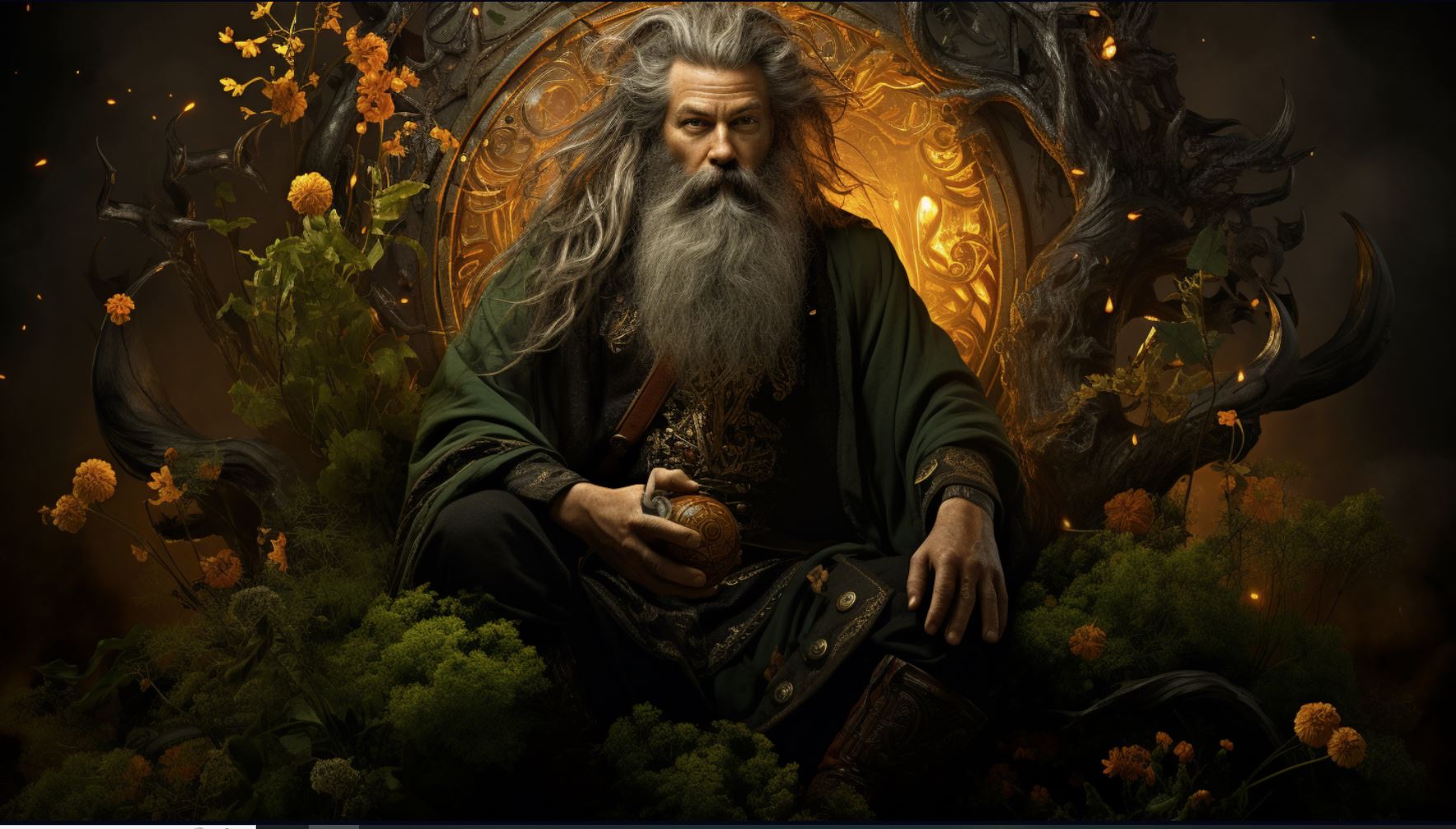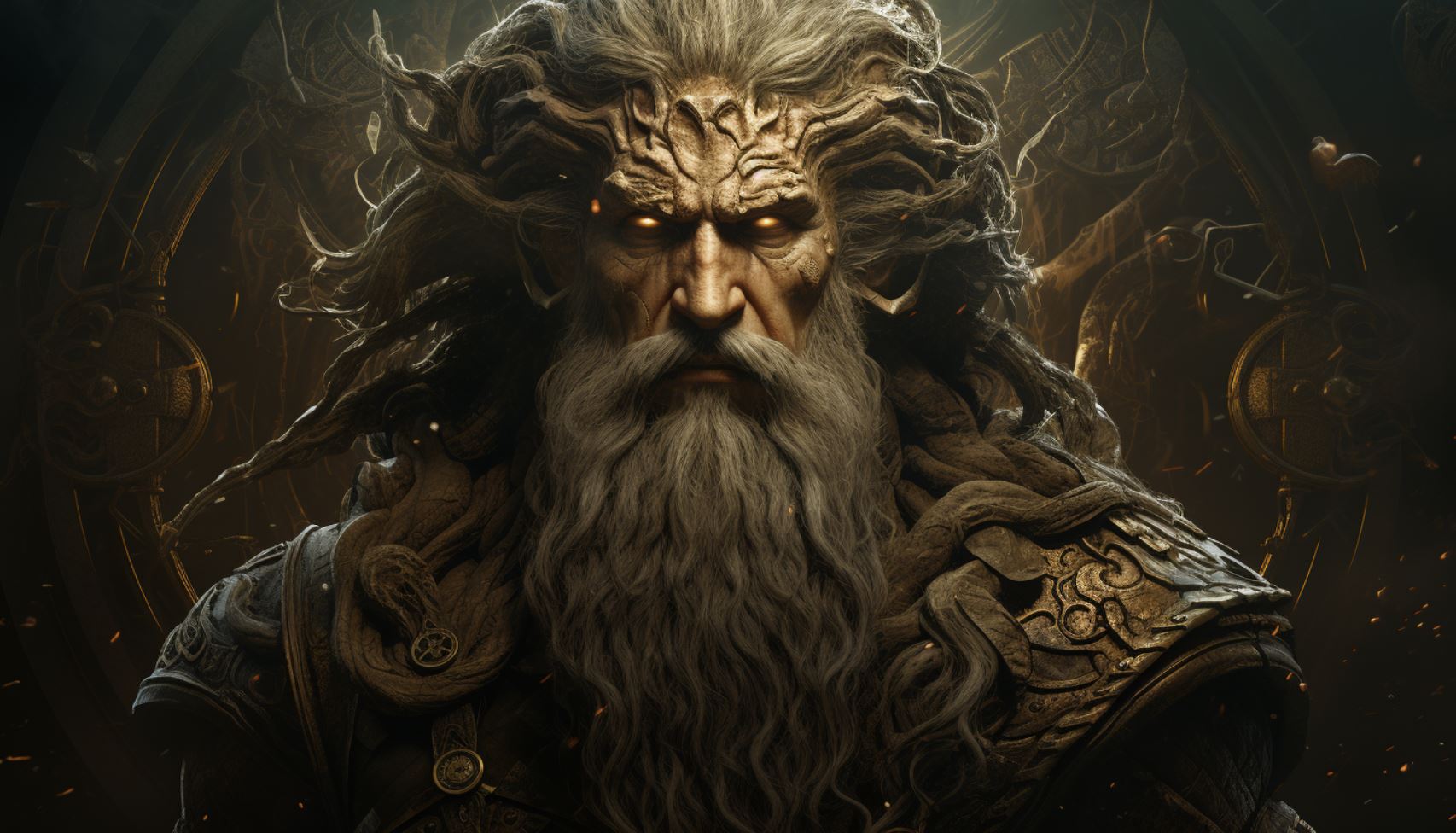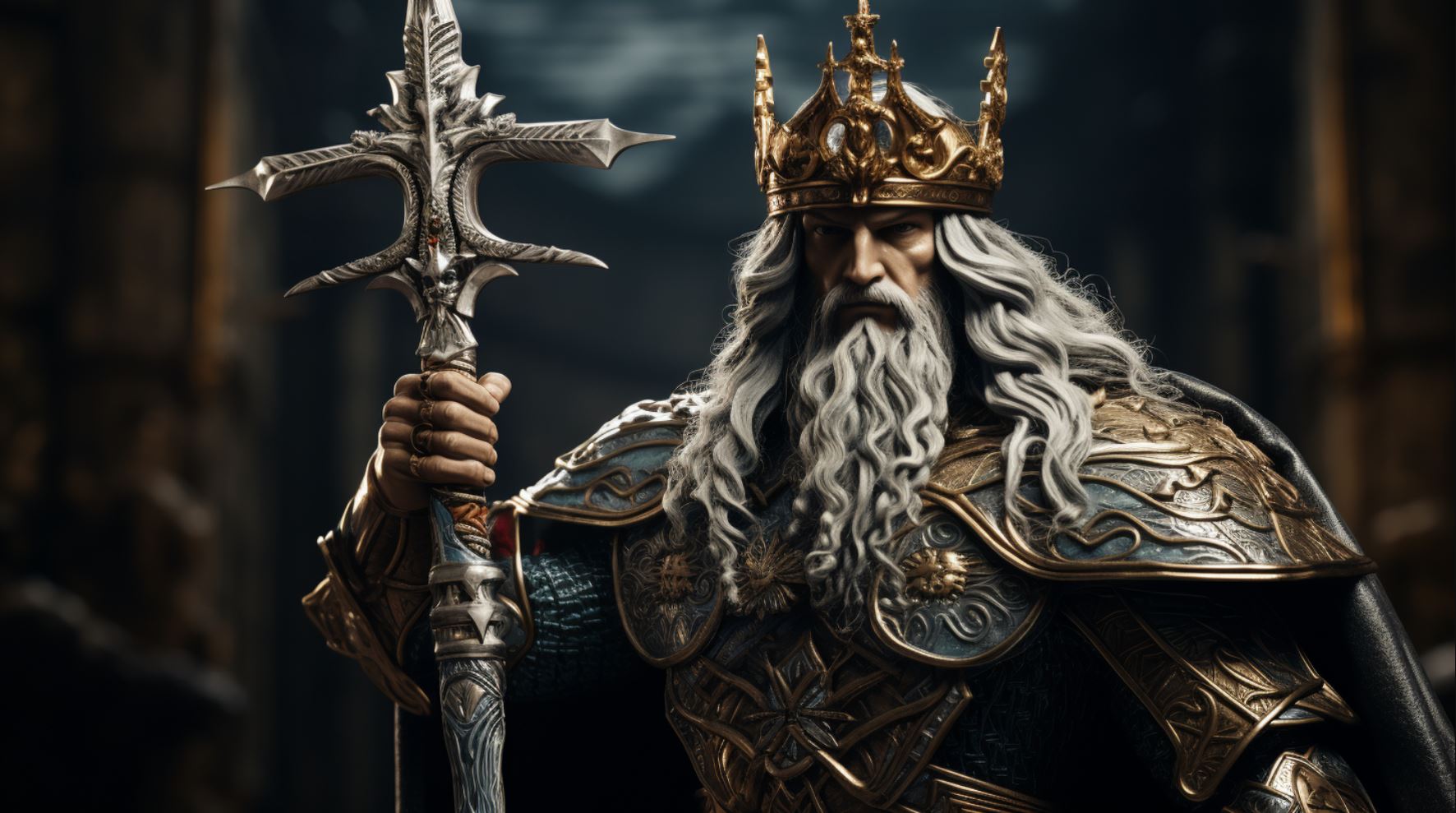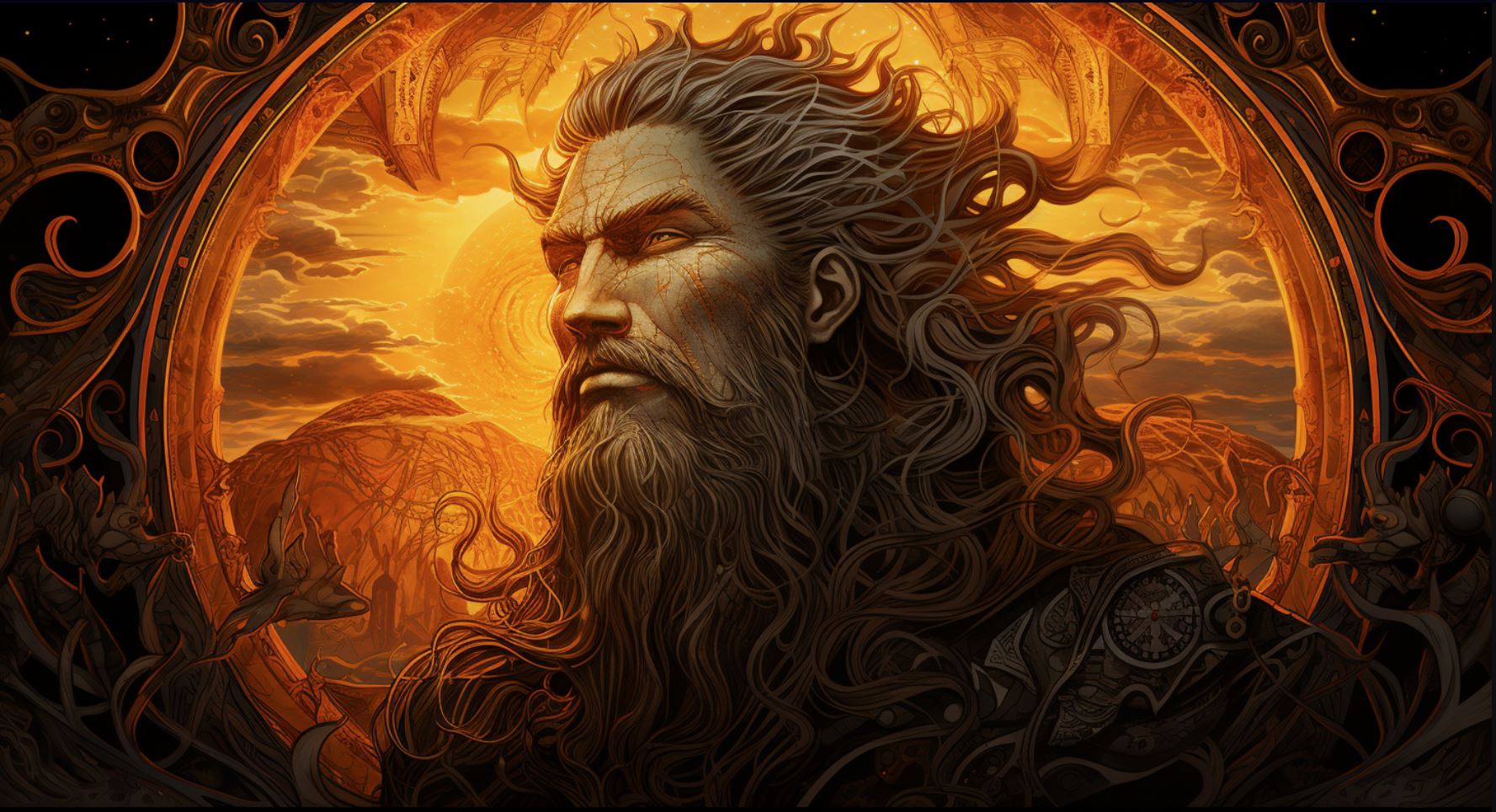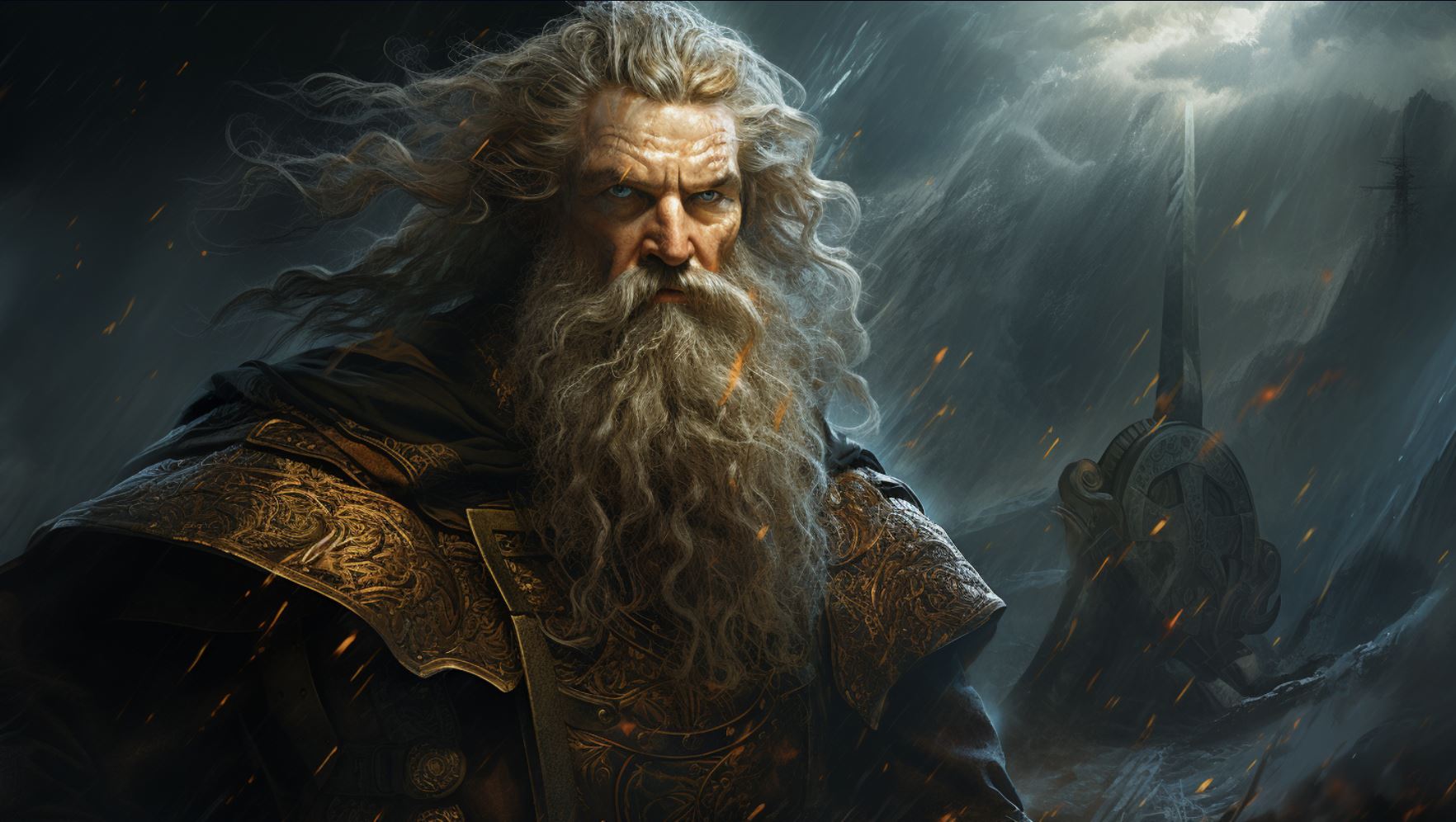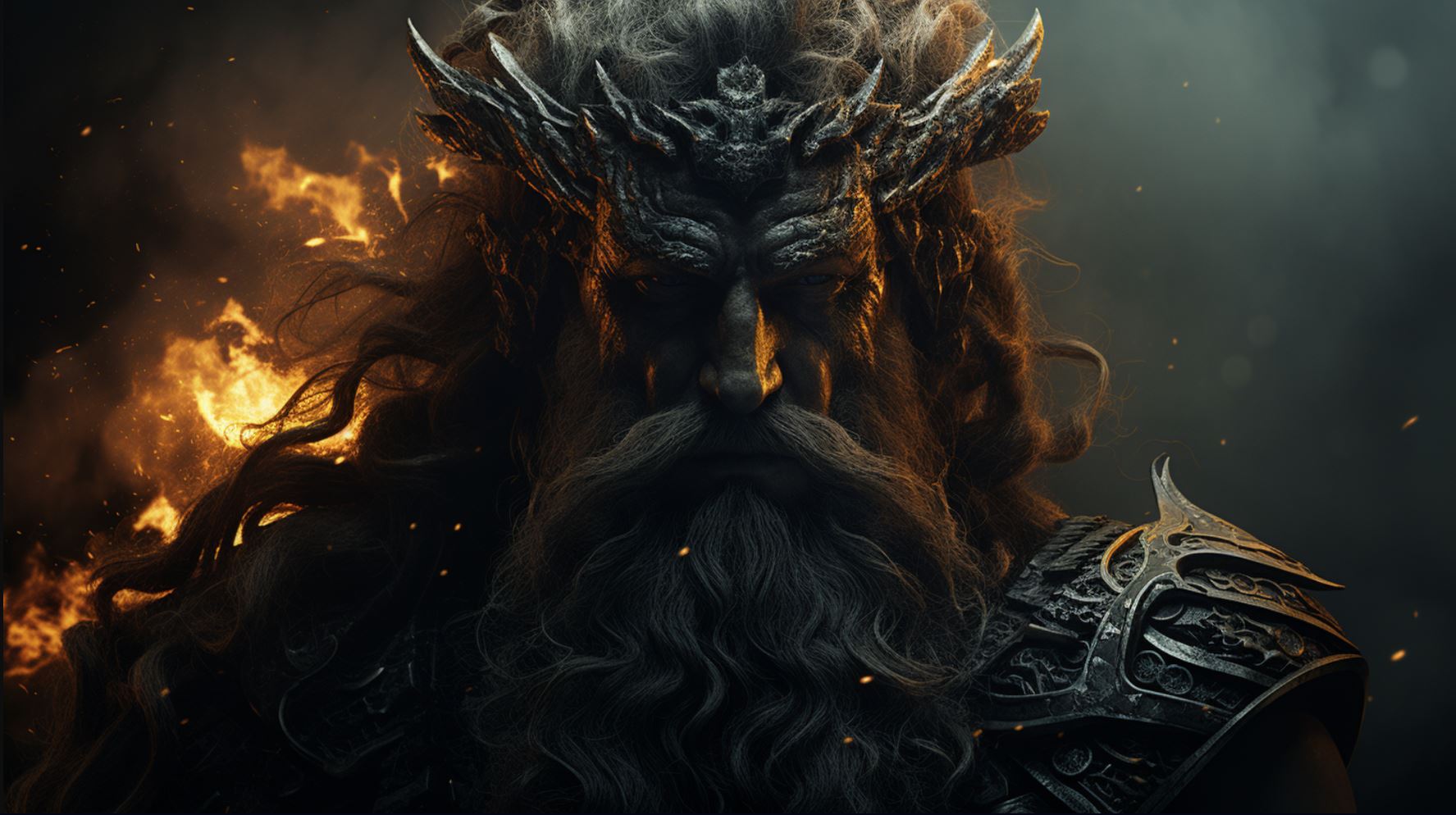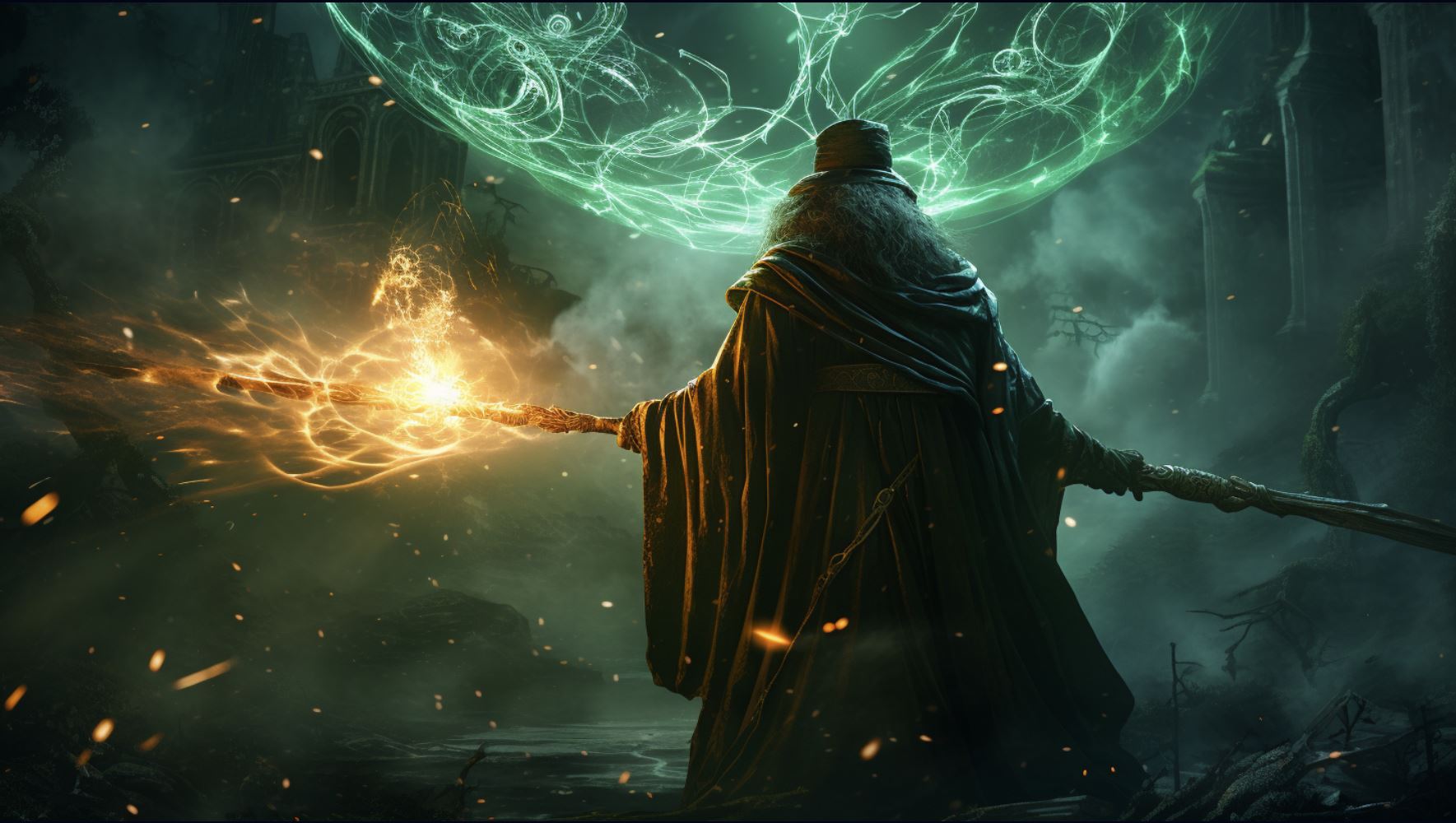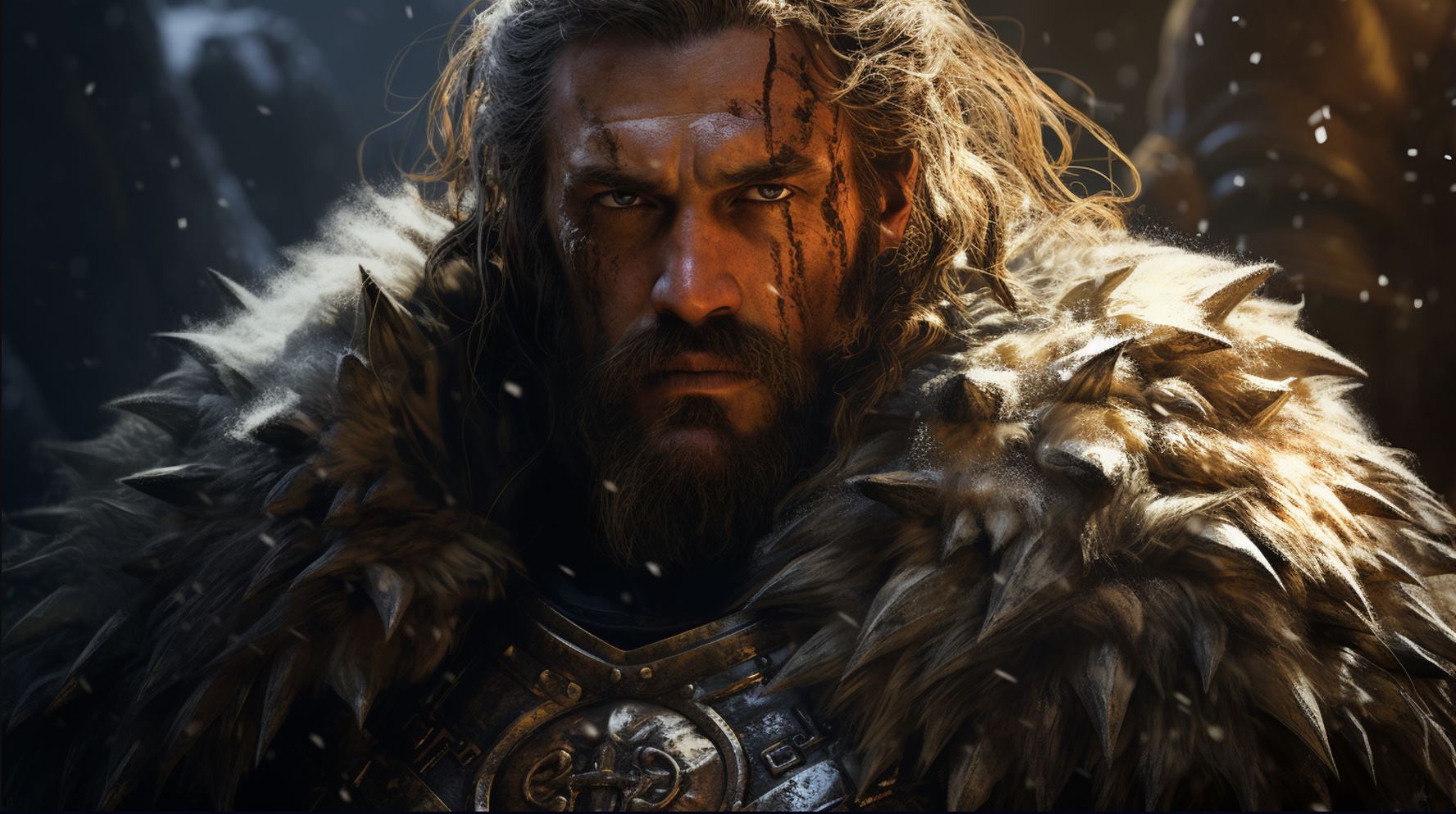‘Neit Celtic God: Unveiling the Warrior Deity of Ancient Ireland’
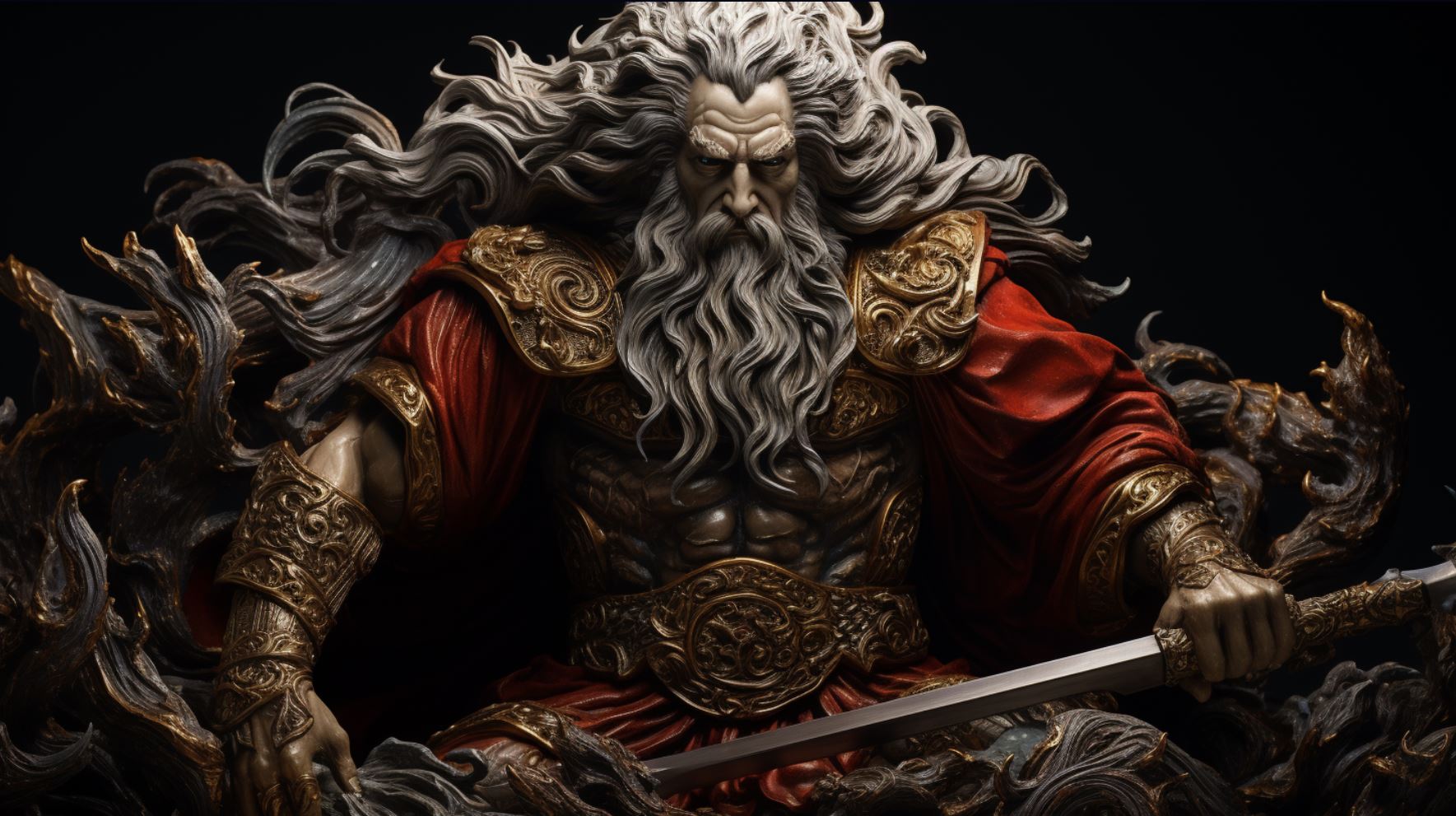
Neit Celtic god, a prominent deity in Celtic mythology, is revered as the god of war. Believed to be the son of Dagda and the father of the Fomorians, Neit’s lineage is deeply rooted in Celtic lore.
Additionally, Neit’s associations with prominent Celtic goddesses, including Morrigan, add further intrigue to his mythological significance. As the former king of the Danann in Ireland, Neit holds a significant place in Irish folklore and legends.
Explore the rich symbolism and interpretations of Neit within Celtic culture and dive into the captivating world of this warrior deity.
Overview of Neit in Celtic Mythology
Neit stands as a prominent figure in Celtic mythology, captivating enthusiasts with his mythical prowess. Revered as the god of war, Neit held great significance in ancient Celtic culture.
According to Celtic lore, Neit was born to Dagda, a prominent deity in Celtic mythology.
As the son of Dagda, Neit inherited immense power and authority.
Neit’s role extended beyond his divine lineage. He was the father of the Fomorians, a race of malevolent giants, which further emphasized his influential position in Celtic mythology.
Intriguingly, Neit’s connections extended to powerful Celtic goddesses, particularly Morrigan. The ties between Neit and Morrigan remain the subject of much discussion and interpretation, weaving a complex web of mythological relationships.
Furthermore, Neit ruled as the king of the Danann in Ireland, leaving an indelible mark on the land’s folklore and legends. The tales of Neit’s reign are intertwined with Celtic history, providing insights into the culture and beliefs of ancient Ireland.
The mythological realm of Neit extends beyond his own persona. Other key figures in Celtic mythology, such as Dagda and Morrigan, play integral roles in shaping Neit’s narrative and the broader scope of Celtic folklore.
As a deity associated with war and conflict, Neit conjures images of bravery, strength, and strategic prowess. Throughout Celtic culture, Neit’s symbolism and interpretations continue to fascinate, providing a rich tapestry of mythological exploration.
The Role of Neit as the Celtic God of War
Neit is a prominent figure in Celtic mythology, revered as the god of war. His role as a warrior deity holds great significance in Celtic culture. Neit embodies the power and ferocity associated with warfare, representing the fierce nature of battle and the strength required to overcome obstacles.
Known for his prowess in combat, Neit is revered as the ultimate protector and defender in Celtic folklore. He symbolizes bravery, strategy, and leadership, serving as an inspiration for warriors and military leaders.
Neit’s dominion over war extends beyond physical conflicts. He also governs the spiritual aspects of warfare, providing guidance and strength to warriors on the battlefield and ensuring victory for those who honor and invoke his divine presence.
As the Celtic god of war, Neit is often depicted wielding mighty weapons and donning armor, representing his readiness for battle. His indomitable spirit and unyielding determination inspire warriors to face their enemies with unwavering resolve.
Throughout Celtic mythology, Neit’s role as the god of war is intertwined with tales of heroic battles, epic clashes, and triumphs. His influence resonates in the legends and folklore of ancient Ireland, cementing his legacy as a powerful and revered deity.
Neit’s Lineage: Son of Dagda and Father of the Fomorians
In Celtic mythology, Neit holds a significant place as the son of Dagda, one of the prominent figures in the pantheon, and the father of the Fomorians. As the offspring of Dagda, a powerful god associated with wisdom and abundance, Neit inherits his divine heritage.
The Fomorians, often depicted as a race of malevolent giants, trace their lineage back to Neit. They are known for their conflict with the Tuatha Dé Danann, the divine race ruling ancient Ireland.
Neit’s role as the father of the Fomorians signifies his influence in shaping the mythical history of the Celtic world.
Through his lineage, Neit connects the realms of gods and giants, embodying both martial prowess and a divine bloodline.
This interplay between Neit’s ancestry and his association with war adds depth to his character and illustrates the intricate relationships within Celtic mythology.
Key Points:
- Neit is the son of Dagda, a prominent god in Celtic mythology.
- He is the father of the Fomorians, a race of malevolent giants.
- Neit’s lineage connects the worlds of gods and giants within Celtic lore.
The lineage of Neit provides a foundation to explore the role he plays in Celtic myths and legends, shedding light on his significance as a warrior deity and his impact on ancient Celtic culture.
Neit’s Connection with Morrigan and Other Celtic Goddesses
Neit, the Celtic god of war, is intricately linked to the powerful Celtic goddess Morrigan, along with other prominent goddesses in Celtic mythology. The connection between Neit and Morrigan is shrouded in mystery and myth, adding to the intrigue surrounding their relationship.
Morrigan, often associated with war and battle, is believed to have a deep connection with Neit, possibly as a consort or partner in their divine pursuits. Their combined forces are thought to have brought immense power and protection to the Celtic people, particularly during times of conflict.
- Badb, one of Neit’s possible wives, is also closely tied to Morrigan, with both goddesses embodying aspects of war, fate, and sovereignty. Their shared qualities further highlight the bond between Neit and Morrigan.
- Frea, another of Neit’s wives, is often associated with sovereignty and fertility, bringing a distinct element to Neit’s connections.
Within Celtic mythology, the relationships between gods and goddesses are complex, intertwining their roles and powers.
Neit’s connection with Morrigan and other Celtic goddesses showcases the intricate web of divine alliances, emphasizing their collective impact on the mythological landscape.
Neit’s Reign as the King of the Danann in Ireland
During his reign, Neit governed with strength and wisdom as the esteemed king of the Danann in Ireland.
As a powerful Celtic god of war, his leadership inspired his people to valiantly defend their land and engage in fierce battles against their adversaries.
Under Neit’s rule, the Danann flourished, their civilization reaching new heights.
Neit’s strategic prowess and military prowess were unmatched, allowing the Danann to establish themselves as a formidable force in the region.
Neit’s reign as the king of the Danann in Ireland was marked by prosperity and protection.
He skillfully led his people through conflicts, ensuring their safety and dominion over their territories.
The tales of Neit’s victories and leadership continue to resonate in Irish folklore, reflecting the reverence and admiration the Celtic people held for their warrior king.
His legacy as a mighty ruler endures, immortalized in the annals of Celtic mythology and the collective memory of the Irish people.
Other Key Figures in Celtic Mythology: Dagda, Morrigan, and more
Within the expansive realm of Celtic mythology, Neit is not the only prominent deity.
There are several other key figures whose presence and attributes shape the stories and legends of ancient Ireland.
Dagda
Dagda, the father of Neit, holds great significance in Celtic mythology. He is known as the all-powerful god, associated with abundance and wisdom. Dagda wields a magical club that can kill in one end and heal in the other, symbolizing both his authority and compassion.
Morrigan
Morrigan, a powerful and enigmatic Celtic goddess, is often intertwined with Neit in the mythological tales. Representing war, fate, and prophesy, Morrigan is a shape-shifter associated with crows or ravens.
Her association with Neit suggests a deep connection between war and its consequences.
Triple Goddesses: Badb, Macha, and Anand
In addition to Morrigan, other triple goddesses play prominent roles in Celtic mythology. Badb embodies various aspects of war, such as battle fury and victory. Macha symbolizes sovereignty and is often associated with horses.
Anand represents joy and is associated with the afterlife.
Danu, Brigid, and Lugh
Other revered figures include Danu, the mother goddess and divine ancestor of the Tuatha Dé Danann, Brigid, the goddess of poetry, healing, and smithcraft, and Lugh, the god of light, craftsmanship, and skill in battle.
Each of these deities brings unique qualities and contributions to Celtic mythology.
The pantheon of Celtic gods and goddesses is vast and intricate, with each figure adding depth and complexity to the rich tapestry of Irish folklore and legends.
Mythological Beings Associated with Neit
Neit, the Celtic god of war, is intricately connected to a host of mythological beings in Celtic lore. These beings, each with their unique attributes and significance, contribute to the rich tapestry surrounding Neit’s story:
- Delbaeth: Neit’s son, known for his bravery and prowess in battle.
- Dót: Another of Neit’s offspring, renowned for their magical abilities and cunning nature.
- Morrigan: A powerful Celtic goddess closely associated with Neit.
Often depicted as a war goddess, Morrigan’s ferocity and divination skills align with Neit’s dominion over warfare.
- Badb and Frea: Neit’s wives, who further deepen his connection to Morrigan through their own divine attributes and roles in Celtic mythology.
In addition to these immediate family members, Neit’s influence expands to encompass various other divine and mythical entities, such as:
- Dagda: Neit’s father and a prominent figure in Celtic mythology, embodying strength and wisdom through his associations with fertility, abundance, and sovereignty.
- Lugh: A multifaceted deity who excels in multiple domains, including craftsmanship, warfare, and governance.
- Cernunnos: A revered god symbolizing fertility, nature, and the wilderness, often associated with the richness and balance of life.
These mythological beings interweave with Neit’s story, lending depth and complexity to his role as the Celtic god of war.
Neit’s Influence in Irish Folklore and Legends
Neit’s presence in Irish folklore and legends has left a lasting impact, cementing his status as a prominent figure in Celtic mythology. Tales of his formidable strength and fierce warrior nature have been passed down through generations, captivating listeners with tales of epic battles and heroic feats.
One key aspect of Neit’s influence lies in his role as the father of the Fomorians, a race of malevolent giants. These beings, born from Neit’s bloodline, feature prominently in Celtic mythology, often depicted as formidable adversaries in the battles between the gods and the Fomorians.
Neit’s association with Morrigan, the goddess of death and war, further enhances his significance in Irish folklore. The intricate connection between these two powerful entities evokes a sense of divine presence on the battlefield, as Neit and Morrigan join forces in the chaos and violence of war.
Through Neit’s reign as the king of the Danann in Ireland, his influence extends to the very fabric of Irish history. His leadership and prowess in battle played a pivotal role in shaping the land and its inhabitants, leaving an indelible mark on the cultural identity of the Irish people.
In conclusion, Neit’s influence in Irish folklore and legends cannot be understated. His role as a warrior deity, his lineage, and his connections with other powerful figures within Celtic mythology contribute to the rich tapestry of Irish cultural heritage.
Interpretations and Symbolism of Neit in Celtic Culture
Neit, the Celtic god of war, holds significant interpretations and symbolism within Celtic culture. As a deity associated with warfare and conflict, Neit represents bravery, strength, and strategic prowess to the Celts.
His presence embodies the warrior spirit and serves as a symbol of protection and defense.
Within Celtic culture, Neit’s symbolism extends beyond warfare. He is seen as a guardian figure, safeguarding against evil forces and offering divine intervention to his followers.
Neit’s association with Morrigan, a powerful goddess of battle and sovereignty, further solidifies his role as a protector and enforcer of justice.
Neit’s lineage as the son of Dagda and the father of the Fomorians adds complexity to his symbolism.
Through this connection, Neit represents the cycles of life and death, as well as the ongoing struggle between good and evil. He embodies the balance between order and chaos, reflecting the duality present in Celtic cosmology.
The worship of Neit in ancient Celtic society also suggests his role as a deity of fertility and agricultural abundance. It is believed that honoring Neit brought bountiful harvests and ensured the prosperity of the land.
This aspect of Neit’s symbolism highlights the interconnectedness between warfare, agriculture, and the natural world in Celtic culture.
In summary, Neit’s interpretations and symbolism in Celtic culture encompass his role as a warrior, protector, enforcer of justice, and representative of the interconnectedness between warfare, fertility, and the natural world.
Understanding the multifaceted nature of Neit is essential in comprehending the depth of his significance in Celtic mythology and spirituality.
.











